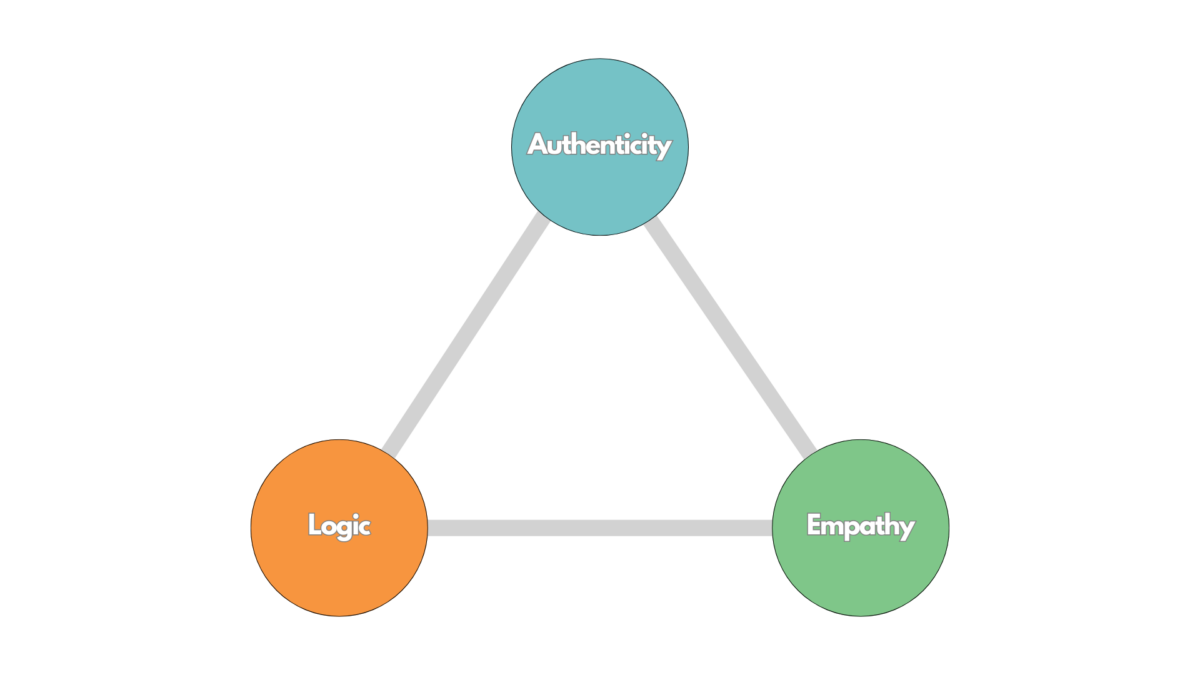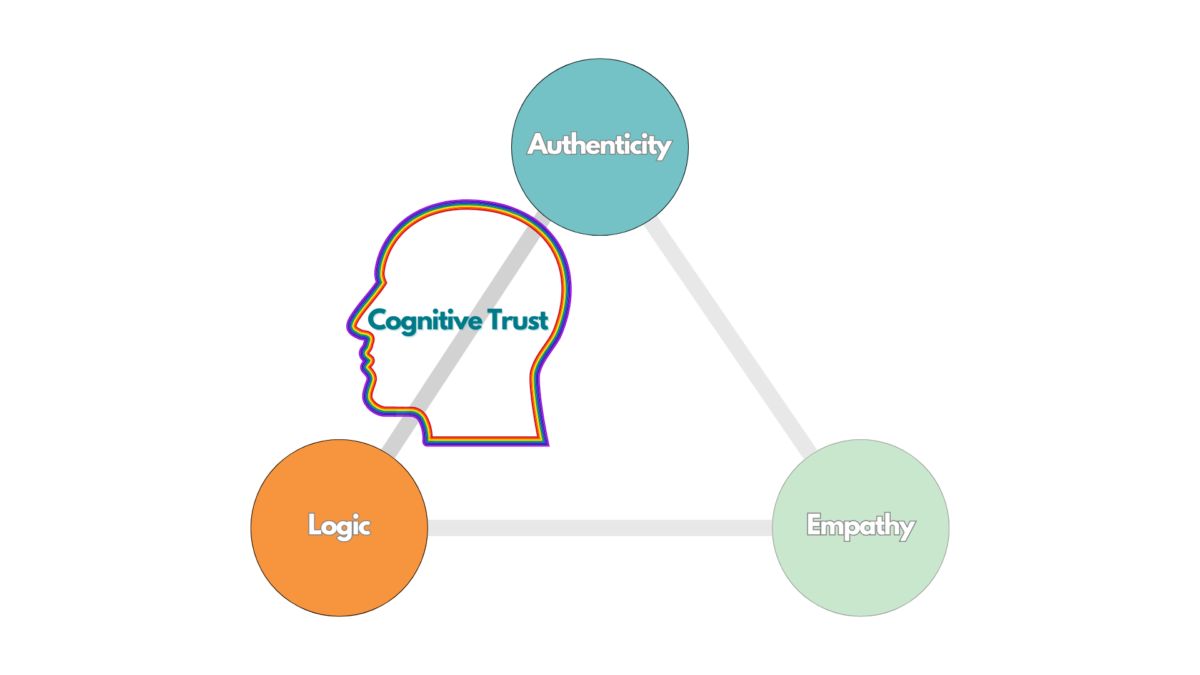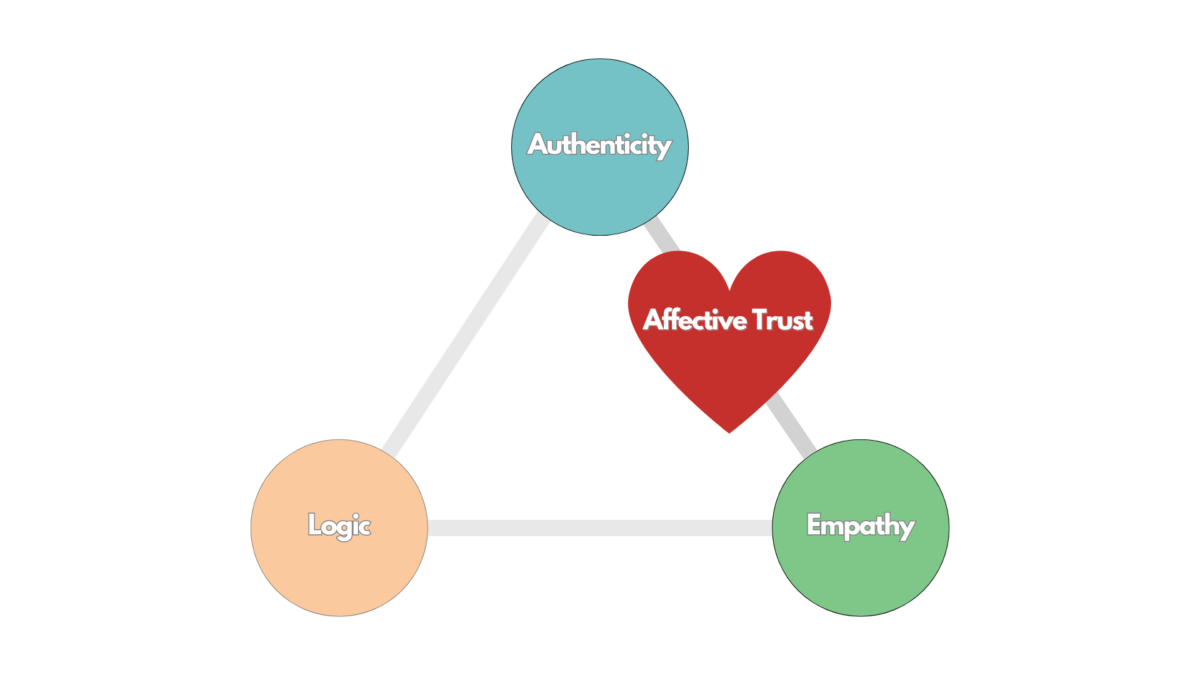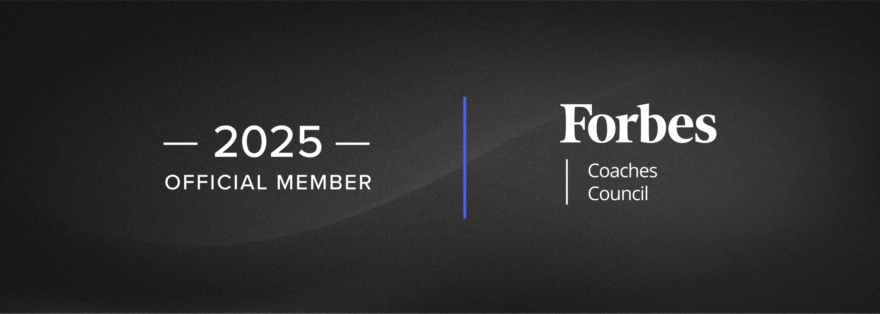Over decades of leading large teams and coaching executives in renowned companies, I’ve learned that trust isn’t just a component of effective leadership—it’s its very foundation. Without trust, strategies falter, innovation stalls and organizations come to a standstill. Today, I want to explore how to build trust within teams from both a leader’s and a team member’s perspective, providing practical insights rooted in real-world experience to help you enhance trust in your own teams.

The Necessity Of Trust In Leadership
Trust acts as a stabilising force in large corporate environments where complexity and change are constants. It’s the invisible thread woven through every interaction and decision, accelerating progress and uniting teams toward shared goals. The impact of trust isn’t theoretical; it’s tangible and profoundly influences organizational success.
Frances Frei’s Trust Triangle
Harvard Business School professor Frances Frei offers a compelling framework called the Trust Triangle, consisting of three critical elements:
Authenticity: Being true to yourself. People can detect inauthenticity instantly; it’s essential to be genuine.
Logic: Having clear and sound reasoning. Your logic should be solid, and you must articulate it effectively.
Empathy: Understanding and sharing others’ feelings. Showing genuine concern for others is crucial in building trust.

These elements interconnect to form two essential types of trust in leadership: cognitive trust and affective trust.
Cognitive Trust: Trust Of The Head
Cognitive trust is the trust of the mind arising from belief in a leader’s competence and reliability. It thrives when team members perceive their leader as authentic and logically sound.

From The Leader’s Perspective
Demonstrate consistency. Align your actions with your words. Inconsistencies quickly erode trust.
Communicate the ‘why.’ Provide context for decisions to empower your team with understanding, not just directives.
Be transparent about challenges. Authenticity includes acknowledging obstacles and sharing your approach to overcoming them.
From The Team Member’s Perspective
Seek clarity. Don’t hesitate to ask questions if something is unclear; this strengthens collective understanding.
Acknowledge expertise. Recognize your leader’s experience, fostering mutual respect and reinforcing cognitive trust.
Affective Trust: Trust Of The Heart
Affective trust is the trust of the heart, cultivated when leaders authentically connect on an emotional level and demonstrate genuine empathy.

From The Leader’s Perspective
Invest in relationships. Take time to understand your team members’ aspirations, fears and motivations.
Show vulnerability. Sharing your challenges and failures humanizes you and creates a safe space for others.
Listen to understand. Focus on truly understanding your team members’ feelings and perspectives.
From The Team Member’s Perspective
Engage openly. Share your perspectives and challenges; building trust is a collaborative effort.
Support peers. Show empathy toward colleagues, strengthening team cohesion and supporting a trusting culture.
Practical Strategies For Leaders To Enhance Trust
- Conduct trust audits. Regularly assess trust levels within your team, seeking honest feedback.
- Lead with integrity. Uphold ethical standards consistently, even when faced with dilemmas.
- Empower decision-making. Delegate authority, showing confidence in your team’s abilities.
- Celebrate wins and learn from losses. Recognise achievements and approach failures as learning opportunities.
Empowering Teams To Build Trust Among Themselves
- Foster collaboration. Encourage cross-functional teamwork to build trust naturally.
- Encourage peer recognition. Implement systems for team members to acknowledge each other’s contributions.
- Promote transparency. Facilitate open communication channels across the team to reduce misunderstandings.
Navigating Trust Erosion
Despite best efforts, trust can sometimes erode due to factors like organizational changes or external pressures.
For Leaders
Address issues directly. Confront trust
issues with honesty and a commitment to resolve them.
Rebuild through actions. Restore trust through consistent, trustworthy actions |
over time.
For Team Members
Provide constructive feedback. Express concerns respectfully; leaders can’t address unknown issues.
Stay committed. Continue performing at your best, contributing positively to the trust environment.
The Synergy Of Cognitive And Affective Trust
Authenticity links cognitive and affective trust. By aligning your genuine self with logical reasoning and empathetic understanding, you create a powerful trust dynamic that resonates both intellectually and emotionally with your team.
Case Study: Trust In Action

I once led a global team through significant organizational change. Initial trust was low due to past leadership missteps. I addressed this by:
Being Transparent: Sharing challenges and the strategic plan openly (Authenticity + Logic).
Engaging Personally: Holding one-on-one meetings to understand individual concerns (Authenticity + Empathy).
Collaborating On Solutions: Incorporating team feedback into implementation plans.
Over time, we not only navigated the change but emerged stronger and more cohesive, demonstrating the impact of building both cognitive and affective trust through authentic actions.
Conclusion: Trust As The Catalyst For Excellence
In the vast corridors of large corporations, trust humanizes the workplace. It’s the catalyst that transforms strategies into successes and groups into unified teams. As leaders, embodying authenticity, logic, and empathy is imperative.
Action Steps
Reflect on your trust triangle. Identify which element—authenticity, logic or empathy—you need to strengthen and develop a plan to enhance it.
Engage your team. Initiate dialogue about trust, encouraging open sharing and collective growth.
Lead by example. Your actions set the tone and embody the trust you wish to see.
Final Thoughts
Building trust requires consistent, intentional actions and a willingness to grow alongside your team. From my experience, the dividends of trust—in engagement, innovation and performance—are well worth the investment.
By focusing on both cognitive and affective trust and recognizing authenticity’s pivotal role in bridging logic and empathy, you position yourself and your team to exceed objectives, turning challenges into opportunities for greatness.
Embrace the journey of building trust. Your leadership will inspire your team and leave a lasting impact on your organization’s culture.
This article first appeared on Forbes.com on 3rd January 2025
Ricky has been a regular contributor to the Forbes Councils since 2023, where he shares his perspectives on all things leadership, change, culture and productivity, all with Thinking Focus’ unique perspective on metacognition, or as we prefer to say, thinking about thinking.


